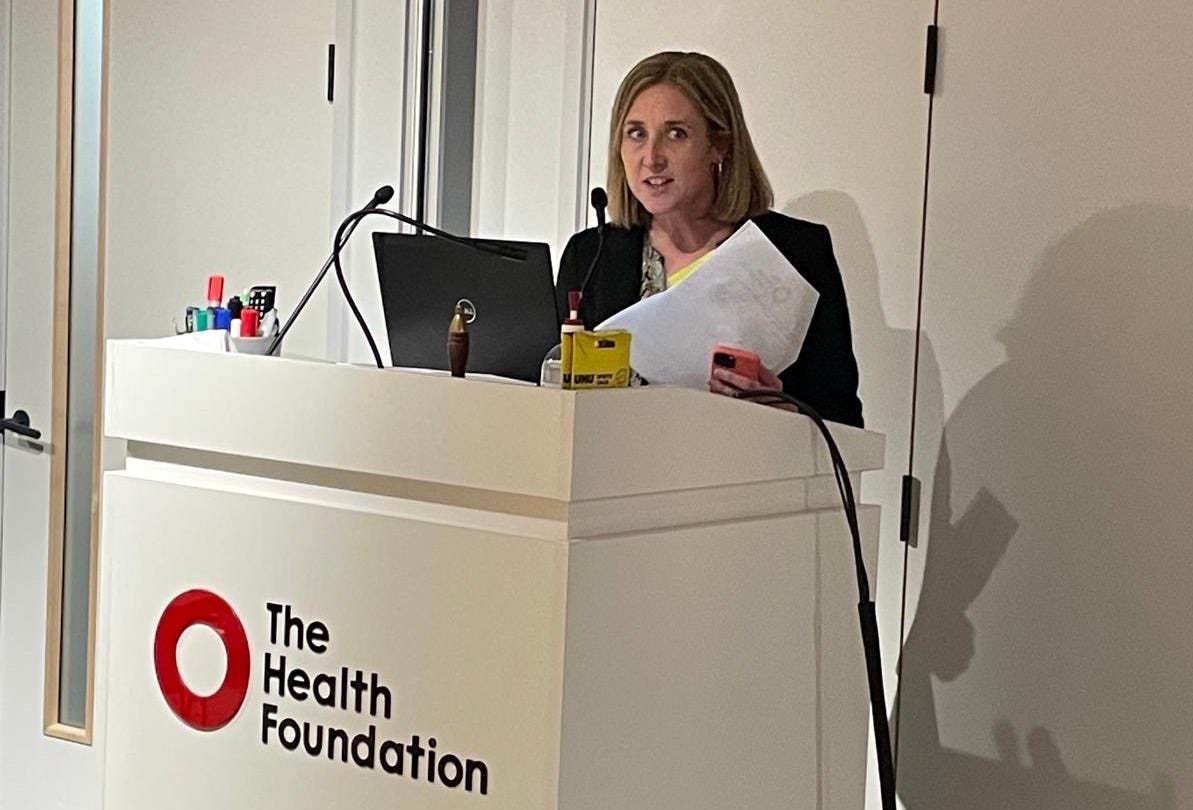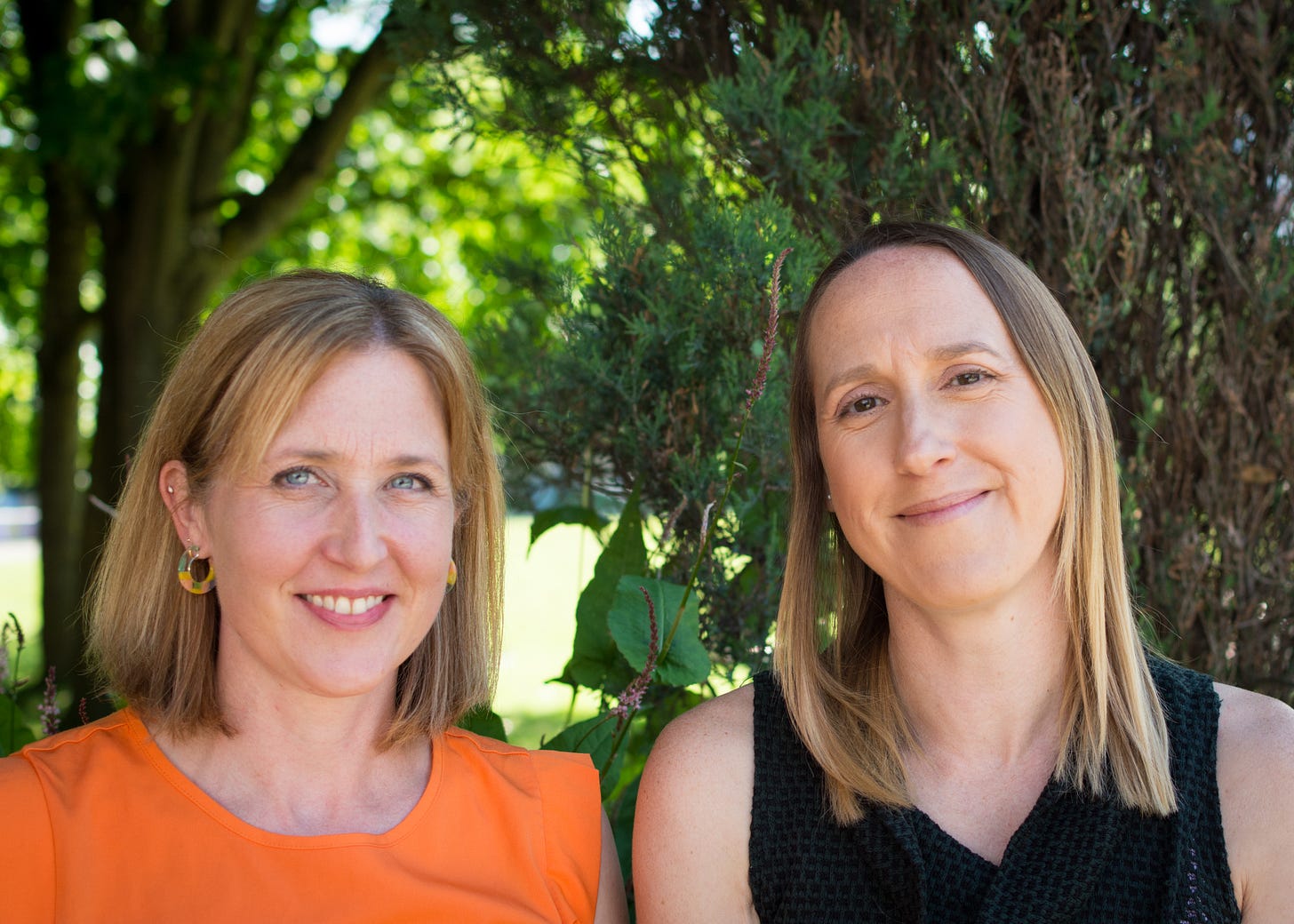Discover how Synapse can help you find stories and build meaningful relationships with PRs.
In the past month (or maybe longer) my life was completely taken over by organising an event for fellow journalists. So now it’s over, and it went well thankfully, I thought it might be useful to share some of the things I learnt along the way. Also, now I’m out the other side, it’s time to reflect on why it can be helpful as a freelancer to push out of your comfort zone and make new connections.
This all came about as part of my role as vice-chair of the Medical Journalists’ Association (MJA), an organisation of more than 450 medical writers, broadcasters and editors. One of my first ‘ideas’ when I joined the executive committee a few years ago was to organise a symposium - a sort of one-day conference - for our members around a theme. The concept was for health journalists to come and talk about their work, perhaps investigations they had done, as well as develop skills and make new contacts.
For the past three years, the event was held in the journalism department at City University in London. We covered reporting after Covid-19, investigative reporting and whistleblowing. It had been very well-received but we thought it was time to change things up a bit.
The theme this year was an easy decision to make. I wanted to talk about health inequalities. From widening gaps in life expectancy and health, to NHS pressures, a cost of living crisis and benefits cuts, health journalists are writing about inequalities every day but I was keen to dig into the effectiveness of this reporting and what we could do differently.
We were very lucky this year to partner with The Health Foundation. They provided the venue at their office in central London as well as the food. They had an events team that arranged all the facilities and tech to help the day run smoothly. My job was to put together a programme of speakers and promote the event to MJA members. This year we decided to hold the symposium on a week day rather than a Saturday as we had in the past. For this to work, we needed to ensure our members had an incentive to leave their desks. In essence we needed to provide something they could actually report on.
So at the start of this year I set about devising a programme that would be a mix of talks from journalists about work they had done in this area and policy and academic experts who could deliver thought-provoking ideas or new research that our members could cover for the national and specialist press.
If you had asked me at the start of last week whether I regretted ever starting this (I should stress unpaid) venture I would have said yes absolutely. We had speakers drop out, illness, and other spanners in the works. Every day I was firefighting problems that had come up at the same time as trying to do my other (paid) work. One speech had to be pre-recorded just two days before the event. I was having to find new speakers on a panel. All were incredibly apologetic, they had hated letting me down, but inevitably life had got in the way.
I also spent a lot of time personally messaging our members to make sure they knew about the event, had signed up and would actually come. Having The Health Foundation on board was incredibly helpful in so many ways but it also added another layer of pressure to fill the room.
Yet by the end of the day on Friday, once the final talk was over, I knew immediately I would be organising another one for next year. The feedback from attendees was incredible. Everyone loved the day, had been enthralled by the talks and welcomed the opportunity to network. At FFJ, we say this a lot, but nothing beats networking. Meeting editors, journalists and contacts I usually only communicate with by email or the occasional Zoom is so incredibly useful. Making new contacts even more so. The event generated connections and ideas not only for me personally but also the MJA.
The day also gave me a renewed sense of why I love health journalism but also areas I want to dig into in more detail and people I can speak to. I do not want to play down how much hard work it was to pull off and how much stress it caused at times but there is just so much value in bringing people together to share their work.
I do get to have a break now (from MJA event organising at least) but here are the lessons I will take into next year.
It is OK to ask for help. The team at the Health Foundation were amazing and we had a weekly meeting to keep on track. But from the MJA side I was doing it all pretty much. FFJ co-founder Lily (knowing how much work it was taking) asked if I would be handing over to someone else next year and I immediately bristled. I didn’t want anyone to take over the symposium, having grown it from nothing. I also find sometimes it is just easier doing things yourself - perhaps that is because I have been a lone freelancer for so long. However, on the day I did ask a colleague who has just joined the MJA committee if they would work with me on the next one. When you’re trying to solve problems, having another trusted person to bounce ideas off can be invaluable. Other committee members helped with introducing speakers and taking photos, which I really appreciated.
Have backup plans. I have lost count of the number of speakers who had dropped out because something had suddenly come up or in the case of one (very busy but amazing speaker) we had a yes-no-yes-no-yes situation. Luckily I had a long list of possible journalists, organisations and others who could speak to the theme of the day so I could move to plan B when circumstances changed.
Make sure people know about it. Our members are incredibly busy and we all know there are a million things competing for journalists’ time. I was relentless on this posting on social media and emailing journalists directly, mentioning it at every opportunity. Our chair was also doing the same. And it worked. We had a really good turn out - the best yet. It was a lot of hassle doing the chasing but all the hard work would have been for nothing if no one had come. I do believe we can do even better on this front so it is something to build on.
If you don’t ask you don’t get. I had aimed high for this event, asking some of the most prominent organisations in this space to come and speak. In the end as well as The Health Foundation we had the Nuffield Trust, Association of Directors of Public Health, Cancer Research UK, the Runnymede Trust and Health Equals come to share details of their work. One big draw for our members was that the UK Health Security Agency launched a new report under embargo with a press release but only for those who were there. That all came about because I reached out to a press officer simply to ask if they would like to be involved. There were of course others who ignored me but maybe I’ll win them over next time!
Leave your desk. AI apps might be able to do some initial research for you or write a snappy headline or pitch. But they can’t have conversations with people in the real world. That is where the important work of journalism happens so the next time you get an invite to a journalism event or conference in your field, take that chance, because it will be worth it.
As for me, the busyness continues as Lily and I have a book to launch next week (yes my scheduling has been very poor recently!). We will tell you all about how we managed to write that alongside the day job in next week’s newsletter.
Do you know about everything we do? FFJ is also a podcast, a book and a Facebook community and we have lots of downloadable resources such as our quick guides on topics like pitching and finances. Don’t forget our training course, work to champion freelance rightsand our annual Freelance Journalism Awards. You can find out about all of this at our website, so have a visit!
Awards sponsors
We are working hard behind the scenes to bring you the Freelance Journalism Awards again this year. We only need two more sponsors to make it work. If anyone has any leads/ideas/suggestions do let us know at freelancingforjournalists@gmail.com

Triumph of the week
Booking in some podcasts and interviews to talk about the book
That feeling when
You connect with an old journalism friend…
We love to hear your feedback on everything we do, so feel free to drop us an email anytime at freelancingforjournalists@gmail.com
Bye for now!










Sounds like a fantastic event! I'd love to read about how you both manage projects like this (events, books) with your long-standing commitments. How do you wind down work when you've got big, one-off deadlines like this without losing your clients completely so they're still there when the projects are finished?